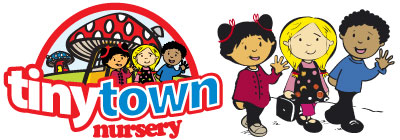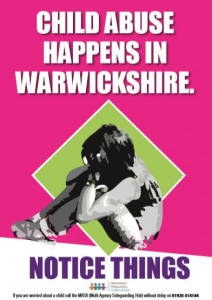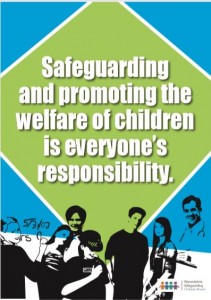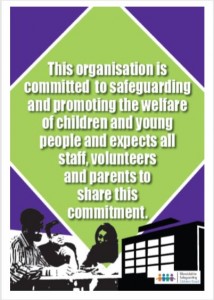Child Protection Policy
Tiny Town Nurseries believe children have the right to be protected from all forms of violence, abuse, neglect and maltreatment by their parents or anyone else who looks after them. We recognise that when considering the types of forms of abuse, the list is non exhaustive but that it now includes: child sexual exploitation, peer on peer abuse and exploitation, preventing radicalization, honour based violence, female genital mutilation (FGM) and we understand our mandatory reporting requirements.
Tiny Town Nurseries will also consider the child’s mental health needs at all times, logging any concern.
- To ensure continued high standards of practice when protecting children, we follow the interagency procedures as set up by the LCSB including the use of Threshold documents, Working Together to Safeguard Children July 2018 and Keeping Children Safe in Education September 2020.
- Tiny Town Nursery staff actively work to ensure all children are safeguarded whilst in our care and that their welfare is promoted at all times.
- Staff will use the correct terminology with children when describing body parts.
- We will always be professionally curious and respectfully uncertain in any incident and will maintain a working ethos of “it could happen here.”
- Safeguarding is everyone’s responsibility and Nursery staff are required to ensure that their approach is child centered and in all circumstances, what is in the best interests of the child.
Stephanie Gilbert, Chelsea Jones and Charmaine Douglas are Coventry nursery’s Designated Leads.
Stephanie Gilbert and Joanne Wakely are Warwick nursery’s Designated Leads.
- The Designated Lead will follow the flow chart for referral if a child is suspected of being at risk.
- The Designated Lead for each setting will attend the Local Safeguarding Children Board’s recognised training sessions and the training will be updated as specified. All other staff will attend Child Protection Level 1 training as conducted by the LSCB.
When a concern is raised about a child’s welfare, staff will follow the ‘Working together to Safeguard Children’ – statutory guidance and immediately seek support by discussing their concerns with the Designated Lead.
- The staff member will accurately and concisely record the concerns on a Logging Concern About a Child (Green) form and the Lead may seek further advice from supporting agencies providing confidential information and identities when requested.
- The Designated Lead will be expected to liaise with the Nursery Directors.
Staff will never make a promise to the child to keep any disclosure a secret.
If there are any concerns regarding the child and it is determined by the Designated Safeguarding Lead that there is a need for Early Help, then we will lead in setting up an inter-agency assessment, ensuring they are reviewed and considered for statutory assessment and services if the child does not improve or gets worse.
The nursery implements the Prevent Duty requirements and staff are aware of their duty to report any concerns regarding radicalization and extremism. This is also part of our safeguarding policy.
Staff can telephone and refer. All concerns must be logged. However, staff may refer independently if they feel that the children are still at risk.
If there is a child within the nursery who has a history of child protection, (who has been working alongside social services,) then the Designated Lead will ensure that all information and paperwork regarding this child is passed onto the next setting, should they leave. A meeting will be arranged between the Designated Leads to ensure this action is thoroughly met.
All child protection documents will be kept for 25 years.
Safeguarding Children Policy
Tiny Town Nurseries believe that the welfare of the child is paramount. Staff are trained to identify changes in behaviour or physical signs which may indicate abuse.
All staff are required to provide full information about previous employments, medical history and references when recruited. All staff hold an enhanced DBS disclosure.
We have a strict collections policy and ensure the safety of children at all times through risk assessment, correct supervision and maintained ratios.
All visitors are asked for ID and accompanied by staff when in the nursery.
Children’s records are kept confidential and locked in the office. Staff do not discuss information and are trained to adhere to the confidentiality policy at all times.
Records are kept of accidents and external injuries to ensure children’s welfare is monitored.
If a staff member suspects a child is at risk they will immediately report to a member of management and record their concerns to be put in the child’s file. If a member of management is not available, the staff member can contact the Nursery Manager at the other site or the Nursery Owner.
If a child discloses abuse to a staff member, they must listen and re-assure the child. Do not question the child and explain that they must share the information with the Nursery Manager to ensure the child’s safety. All conversations must be documented.
If the manager feels there is a concern about a child’s welfare, the parent will be involved unless we feel this would put the child at further risk. They will contact the local social services office following Local Safeguarding Children’s Board guidelines.
Children at the nurseries are encouraged to learn about safety. They are encouraged to be independent when toileting and staff talk to them about privacy. Children are encouraged to respect personal space.
Nappy changing and toileting is carried out in secure facilities and no visitors are permitted in the area when a child is being changed.
Children’s safety on outings is detailed in the outings policy and he nursery staff encourage the children to be aware of issues such as stranger danger and use external agencies such as the police and local crossing guards to support their learning.
Parents are required to inform nursery of any special dietary requirements, allergies or other medical conditions and nursery management must ensure appropriate risk assessments are in place to protect the child.





Leave a Reply
You must be logged in to post a comment.